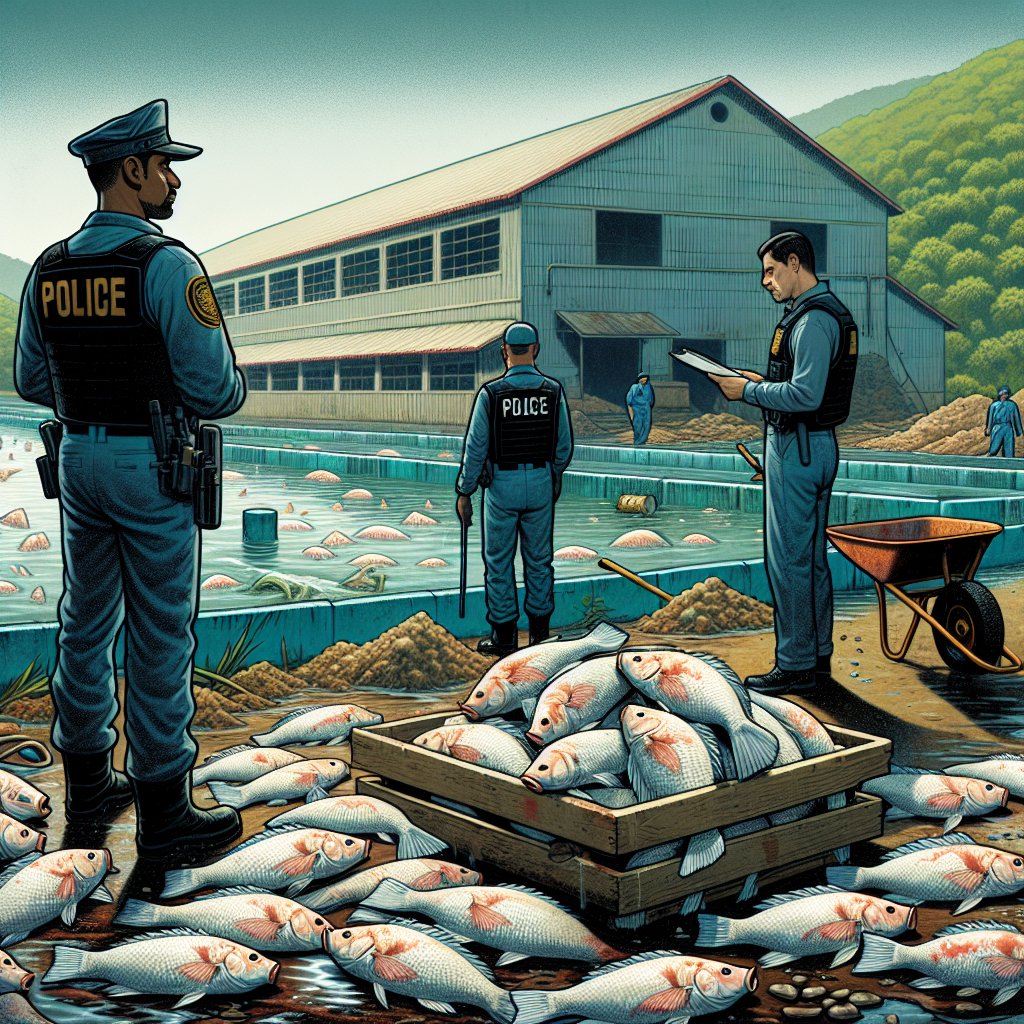Image created by AI
Dire State at Mpumalanga Fish Farm: NSPCA Reveals Shocking Animal Neglect
In a profoundly disturbing revelation, national inspectors from the NSPCA's farm animal protection unit have uncovered devastating conditions at a government-supported fish farm in Mpumalanga. The farm, which specializes in the breeding of Mozambican tilapia, was found to be in a state that starkly contravenes basic welfare standards.
After an anonymous tip-off, NSPCA officials confronted resistance when the owner of the facility barred their entry, citing constitutional rights. Persistence led to a warranted return visit with the support of the South African Police Service, enabling inspectors to investigate the situation lawfully.
What they found was harrowing: the facility lacked adequate environmental protection, exposing the fish to harsh conditions. Crucially, there was no heating provision, a necessity for Mozambican tilapia, which thrive in warmer waters. The ponds were marred by filth, indicative of gross mistreatment and negligence in maintenance.
Worse still, heaps of dead fish filled a wheelbarrow on-site, a recent mass mortality precipitated by a prolonged power outage and the lack of a backup system. NSPCA officers were aghast to learn from the caretaker that in the wake of this electricity deficiency, no live fish remained—only more carcasses. Astonishingly, regular feeding continued, suggesting a troubling disconnection from the reality of the situation.
The NSPCA's further investigation points to the involvement of the Department of Agriculture, Rural Development and Land Reform, which appears to have failed in its oversight responsibilities, allowing the conditions to deteriorate despite prior knowledge. The owner's unsuccessful attempts to secure funding for improvements only underscore the severity of the oversight failure.
Confronted with such wanton neglect, the NSPCA has taken immediate action by issuing a formal warning to the owner and urging the Department to order a shutdown of the facility. The pursuit of legal action is currently under consideration against all parties involved, including the caregiver, the owner, and the department.
The situation demands not just immediate rectification but a comprehensive reassessment of aquaculture practices in the nation. With the burgeoning industry and the appeal of Mozambican tilapia farming due to the species' resilience, the NSPCA stresses the necessity of proper education and infrastructure to meet these animals' needs adequately.
Reflecting on the incident, NSPCA spokesperson Jacques Peacock lamented the common misconception that fish do not suffer or feel pain, noting the challenge inherent in shifting public perception to recognize the sentience of these creatures.
The NSPCA remains steadfast in its resolve, having previously succeeded in shutting down similar government-funded projects engaged in animal cruelty. It underscores that while inspections can yield positive change through owner cooperation, consistent regulation is essential to prevent such tragedies.
As aquaculture prospers in South Africa, this case serves as a sober reminder that economic growth must not come at the cost of animal welfare. The NSPCA's findings at the Mpumalanga fish farm are a call to action for better oversight and a commitment to humane, ethical practices within the industry.










